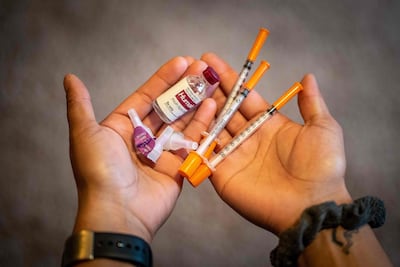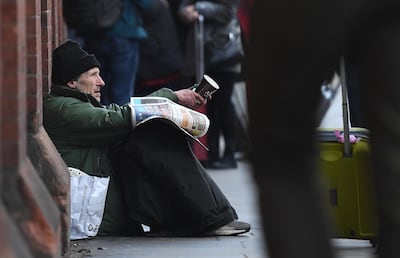While the world comes to terms with the idea of a coronavirus pandemic, there is a creeping health care crisis that has received much less attention and yet ultimately could prove more deadly.
In some rich countries, years of progress in healthcare outcomes have been going in reverse. Between 1959 and 2014, for instance, the average life span of Americans continued to rise. Then it stopped. In 2016, it started to go backwards. By the end of 2019 – for the third year in a row – life expectancy in the US declined, according to a study published in the Journal of the American Medical Association.
This decline in life expectancy affects a very wide age group at the most productive time of their lives – adults between the ages of 25 and 64. In those three years, from 2016 to 2019, Americans were dying earlier as a result of preventable life-style related ailments, including obesity, opioid addiction, alcoholic liver disease and suicide.
The study’s lead author, Steven Woolf, pointed out that Americans seem to believe that their country leads the world in so many ways. And yet, despite spending much more per capita on health care than any other country, American healthcare outcomes are often much worse than in poorer societies.

When it comes to infant mortality in the US, for example, there are 5.3 infant deaths for every 1,000 live births. In Cuba – a much poorer developing country – there are 4.3 infant deaths per 1,000 live births. Statistically it is safer for a child to be born in Cuba than in the world's richest country. Before you wonder where this anti-American propaganda comes from, here is the source: the excellent CIA Factbook, available online. Google it. The US intelligence agency's compendium of worldwide information is, by the way, a useful and accurate source of troubling health statistics.
Meanwhile in the UK, most people are proud of our National Health Service. I am, too. Our taxpayer-funded system provides much better outcomes than the American private healthcare system, and is much less costly. When I lived in the US, I timed my first consultation with an American doctor about a sports injury. My four-minute consultation cost me – or rather my insurers, $250; that is $62.50 a minute or a dollar a second.
However, a new study suggests that for many British people, things here are also going in reverse. A report by Prof Michael Marmot, one of Britain’s leading experts on health inequalities, says that for the first time in 100 years life expectancy in England stalled over the past decade. Among English women living in the poorest communities, life expectancy has declined since 2011, and health inequalities are growing.
"England has lost a decade," Prof Marmot says, adding that the damage to the nation's health is “shocking" with the largest decreases in life expectancy seen in the most deprived areas of north-eastern England. Some areas did see increases in life expectancy, but the biggest improvements were in the richest parts of London.
Some people are born into privilege, and that tends to mean statistically they are born to live longer. The rich-poor life expectancy gap in Britain is a difference of 9.5 years for men and 7.7 years for women. The rich have always lived longer than the poor, but the map of declining health outcomes more or less coincides with areas where the majority of people showed their discontent with their lives by voting for Brexit.
What is interesting about the Marmot study is the relationship it makes not merely between health and wealth, but also with public spending.
In the century before 2010, life expectancy improved dramatically by about one year every four years. This came about thanks to better nutrition, better education, better hygiene and scientific advances, such as the discovery of antibiotics. But the reversal in life expectancy in poorer areas in the past decade coincides exactly with the period when British government public expenditure dropped. In 2009-10, government spending was 42 per cent of GDP. Then under the years of austerity up until 2018-19, it fell to 35 per cent of GDP.
Is this coincidence – or cause and effect? Well, Prime Minister Boris Johnson’s government now claims it wants to increase public spending to “level up” the British economy. One way of demonstrating that this is happening would be to ensure that health spending rises, although bigger reforms are needed.
Child poverty, and too many families where the bread-winner has low-quality, low-paid and insecure work are also contributory factors to the drop in life expectancy in poorer areas. Health is not just a matter of diet, vitamins and exercise or high-tech medical procedures. It is also a matter of economic well-being and opportunity.
The decline in health outcomes coincides precisely with the decade in which the British Conservative party has been in government. Reacting to the figures, the UK’s Health Secretary Matt Hancock commented that there was "still much more to do".
It is a perceptive diagnosis, but where is the cure?
Gavin Esler is a journalist, author and presenter



